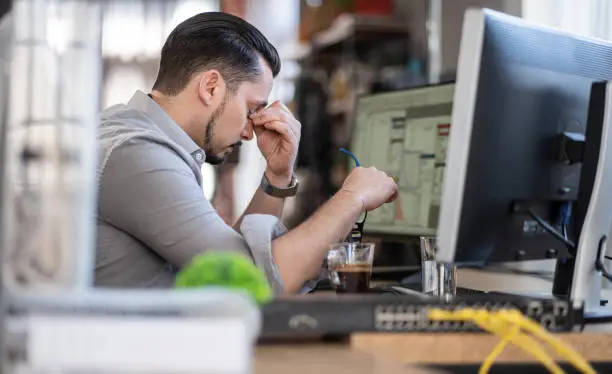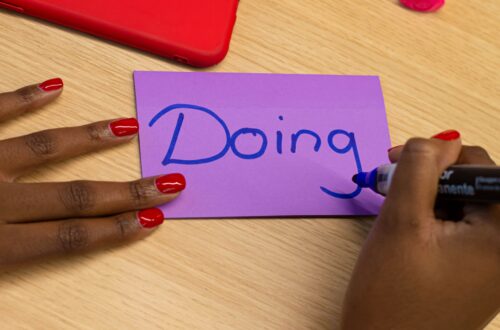We all get tired sometimes — after a long day, a bad night’s sleep, or a stressful week. But what if you always feel tired? Like no matter what you do, you’re dragging yourself through the day?
Let’s break down why your energy feels like it’s running on empty and how you can get back to feeling like yourself again.
1. Understanding Fatigue
What is fatigue?
Fatigue isn’t just feeling sleepy — it’s a deep, lingering exhaustion that doesn’t go away with rest. It can be physical, mental, or emotional, and sometimes all three at once.
Different types of tiredness
- Acute fatigue: Usually short-term, like after a big event or night out.
- Chronic fatigue: This hangs around for weeks or months and needs deeper digging.
2. Poor Sleep Quality
Signs of poor sleep
You might be in bed for eight hours, but if you wake up tired, you’re probably not getting quality sleep. Snoring, tossing and turning, or waking up often are signs something’s off.
Sleep disorders to consider
Conditions like sleep apnea and insomnia are common and often undiagnosed. They mess with your deep sleep stages, leaving you foggy and drained.
3. Unhealthy Diet Habits
Sugar crashes and fatigue
A sugary breakfast or snack might give you a quick boost, but it’s followed by a crash that leaves you more tired than before. Your energy rides a rollercoaster when your diet is off.
Importance of balanced meals
Eating whole grains, healthy fats, proteins, and fiber helps maintain steady blood sugar levels, keeping your energy consistent throughout the day.
4. Sedentary Lifestyle
How inactivity affects energy
When you’re not moving much, your body goes into “rest” mode. You might think resting gives you energy, but ironically, too little activity makes you feel more tired.
Simple ways to stay active
You don’t need a gym membership. Walk around the block, stretch every hour, or dance around the house. A little movement goes a long way.
5. Chronic Stress and Anxiety
How stress drains you
Stress keeps your body in fight-or-flight mode. Over time, this burns out your system, leaving you mentally and physically exhausted.
Mental fatigue vs physical fatigue
You can feel tired without doing anything physical. That’s the power of mental exhaustion — your brain’s running nonstop, and it’s draining your battery.
6. Dehydration
Signs you’re not drinking enough
Headaches, dry mouth, and dark urine are red flags. But fatigue is often the first sign of dehydration people miss.
How water affects your energy
Your body needs water to carry nutrients and oxygen to cells. No water = slow delivery = low energy.
7. Hidden Medical Conditions
Thyroid issues
An underactive thyroid (hypothyroidism) slows down everything — metabolism, brain function, and yes, energy. It’s more common than you think.
Anemia and fatigue
If your blood isn’t carrying enough oxygen, your muscles and brain suffer. Low iron levels can make you feel wiped out even after doing nothing.
8. Vitamin and Mineral Deficiencies
Iron and Vitamin D
Low iron causes fatigue, especially in women. Vitamin D, often lacking in people who stay indoors, also affects mood and energy.
B12 and magnesium
B12 helps your nerves and red blood cells function. Magnesium supports over 300 body functions. Being low in either? Expect fatigue.
9. Overworking Without Breaks
The burnout cycle
Working long hours with no breaks leads to burnout — a real medical condition recognized by the World Health Organization. It’s not just “being tired.”
Signs you need to rest
You’re irritable, forgetful, and physically drained. That’s your body begging for a reset.
10. Poor Mental Health
Link between depression and fatigue
Fatigue is one of the most common symptoms of depression. If everything feels like a chore, you’re not lazy — you might be struggling mentally.
When to seek help
If tiredness is paired with low mood, hopelessness, or changes in appetite/sleep, talk to a therapist or doctor. Mental health matters.
11. Caffeine Overload
Caffeine dependency
Caffeine gives a short-term kick, but relying on it too much makes your natural energy dip worse. It’s like borrowing energy you have to pay back later.
The afternoon crash
That 3 PM slump? Blame that second (or third) cup of coffee earlier. Too much caffeine can mess with your sleep and your body’s rhythms.
12. Sleep Saboteurs You Don’t Realize
Blue light exposure
Scrolling your phone at night? That blue light tricks your brain into thinking it’s daytime, delaying melatonin production — the sleep hormone.
Alcohol and nicotine at night
Alcohol might make you sleepy, but it disrupts REM sleep, while nicotine is a stimulant. Together, they ruin your night’s rest.
13. Hormonal Imbalances
Adrenal fatigue myth
While “adrenal fatigue” isn’t an official diagnosis, your adrenal glands do play a role in energy production. Chronic stress affects them.
Menopause and energy levels
Women going through menopause often report exhaustion. Fluctuating estrogen impacts sleep and mood — a double whammy for energy.
14. Fixing the Fatigue: Lifestyle Hacks
Creating a sleep routine
Go to bed and wake up at the same time daily. Limit screens before bed and keep your bedroom cool and dark. It works like magic.
Mindfulness and exercise
Even 10 minutes of meditation or a brisk walk can boost your energy levels and clear brain fog. You don’t have to be a monk or a marathoner!
15. When to See a Doctor
Red flags not to ignore
If you’ve made lifestyle changes and still feel exhausted, it’s time to see a doctor. Fatigue can be a symptom of something serious.
Getting proper testing
Simple blood tests can uncover deficiencies or hormonal issues. Don’t guess — get tested and get answers.
🧠 Conclusion
Feeling tired all the time isn’t just in your head — and it’s not normal. Whether it’s poor sleep, stress, diet, or an underlying condition, your body is waving a red flag.
Start small: improve your sleep hygiene, drink more water, move more, and check in with your mental health. If it persists, talk to your doctor. Life’s too short to spend it tired.
❓FAQs: Why You Feel Tired All the Time — And How to Fix It
1. Can vitamin deficiency really make me feel this tired?
Yes! Vitamins like B12, D, and minerals like iron are crucial for energy production. If you’re low, fatigue is one of the first signs.
2. How much sleep do I really need to feel rested?
Most adults need 7–9 hours of quality sleep per night. But it’s about quality and quantity — deep sleep is key.
3. Is it normal to feel exhausted after eating?
It can be if you’re eating heavy, sugary, or carb-loaded meals. Try balanced meals with fiber and protein to avoid post-meal crashes.
4. Does mental health affect physical energy?
Absolutely. Depression, anxiety, and stress can all lead to chronic fatigue. Your mind and body are deeply connected.
5. What’s the fastest way to boost energy naturally?
Drink water, take a brisk walk, breathe deeply, and get outside in the sunlight. Nature and movement are instant refreshers.





